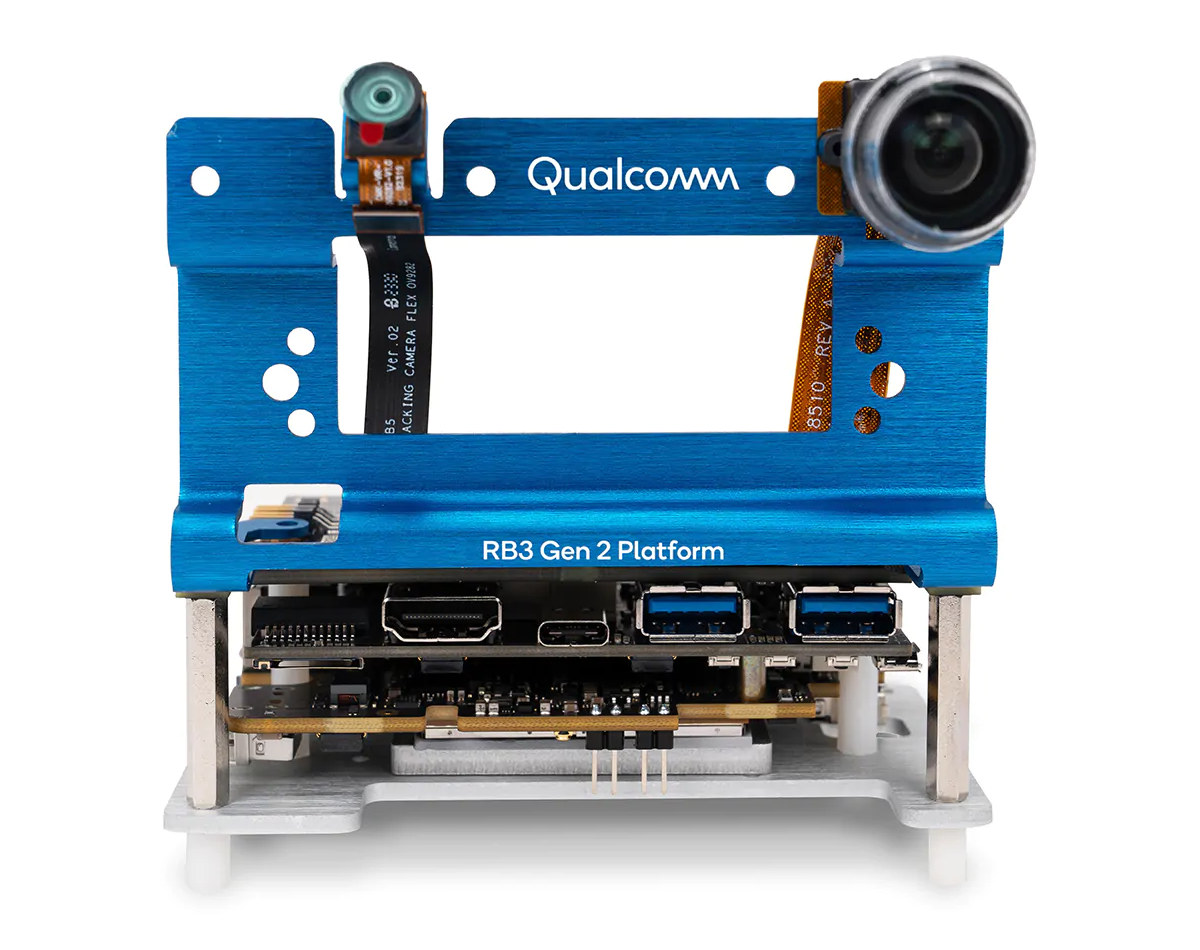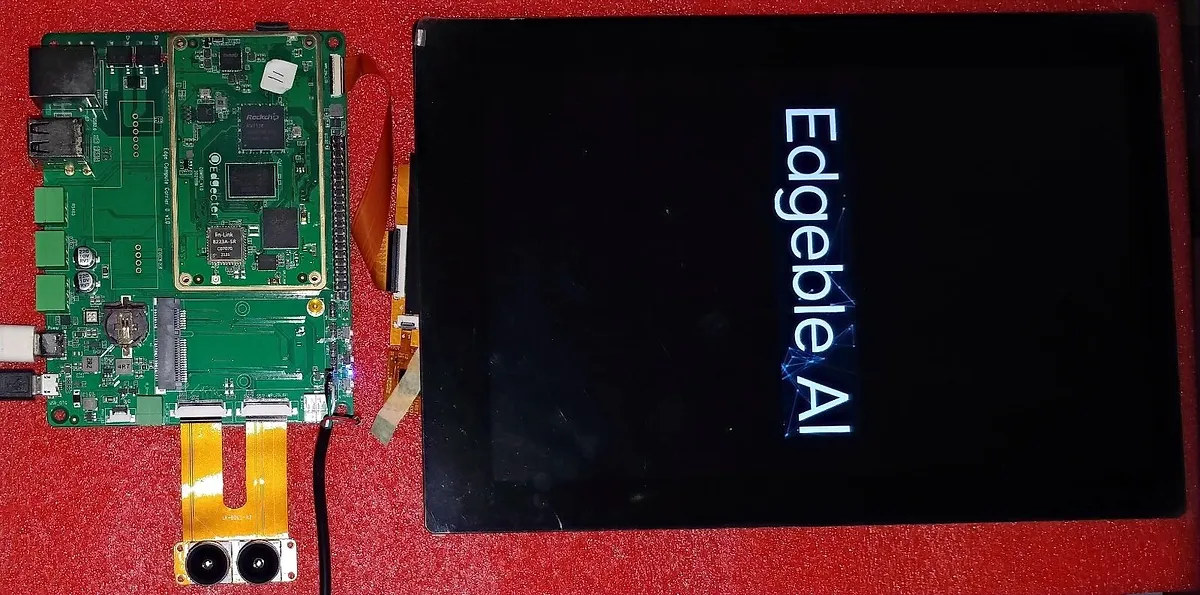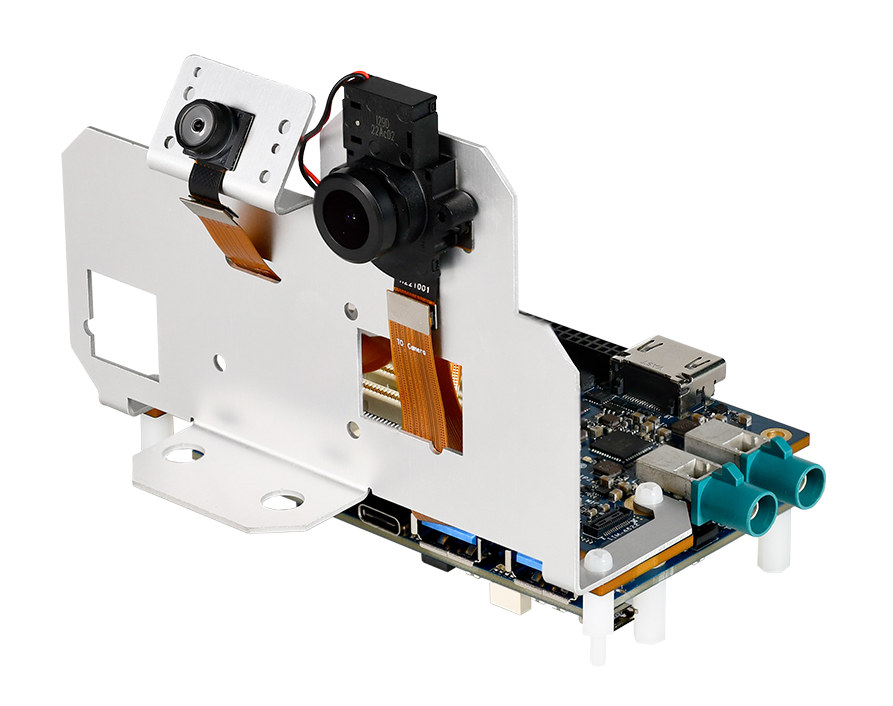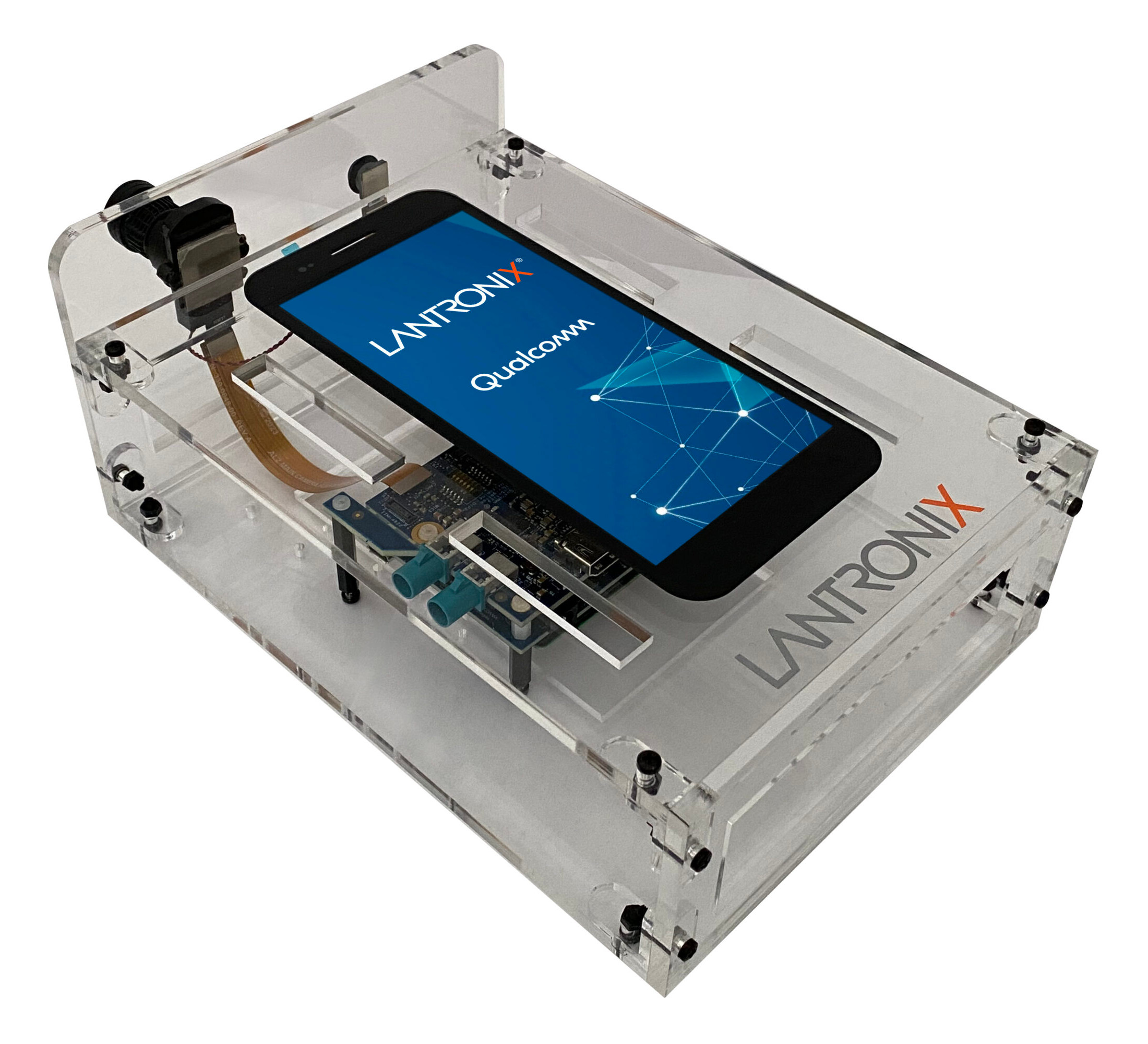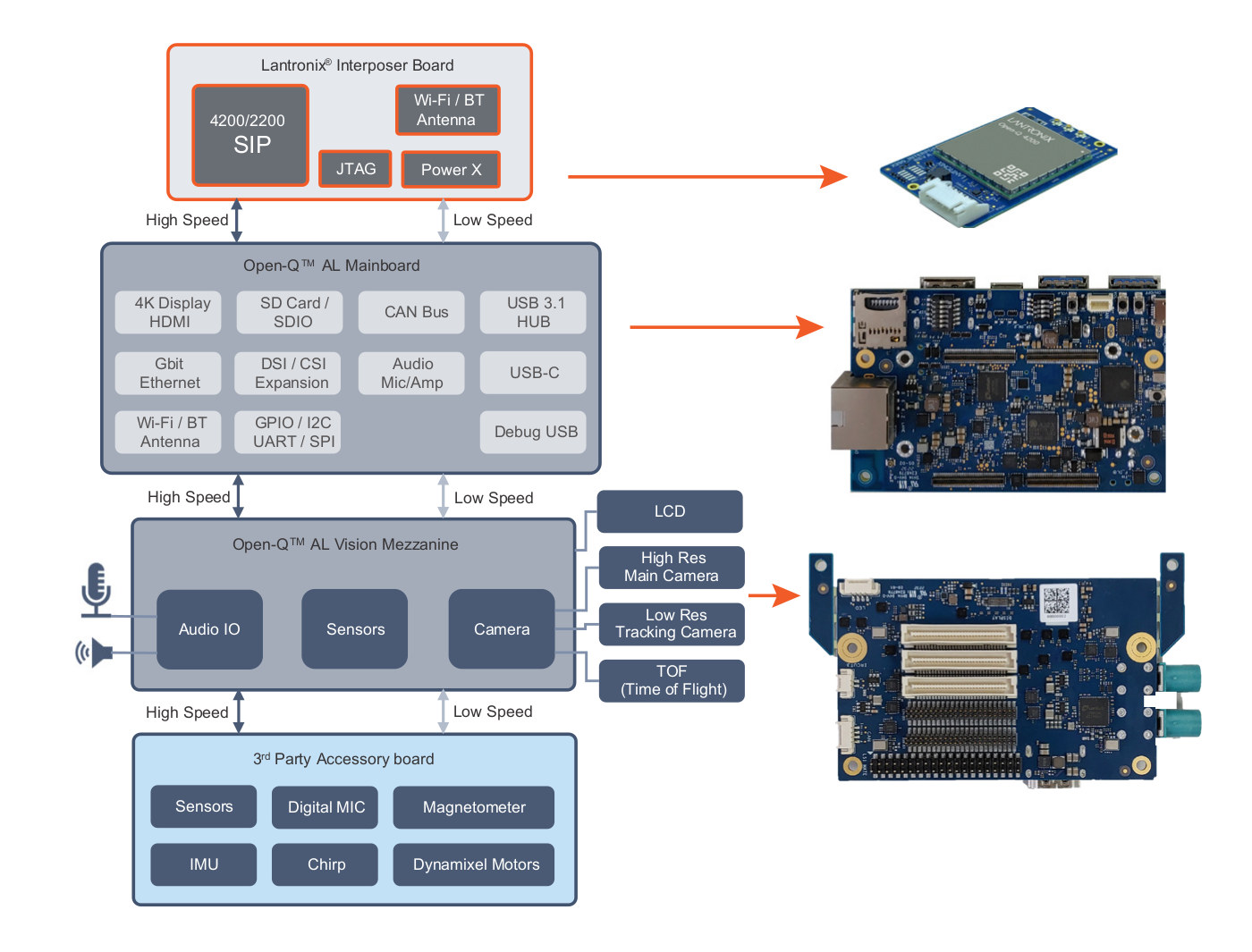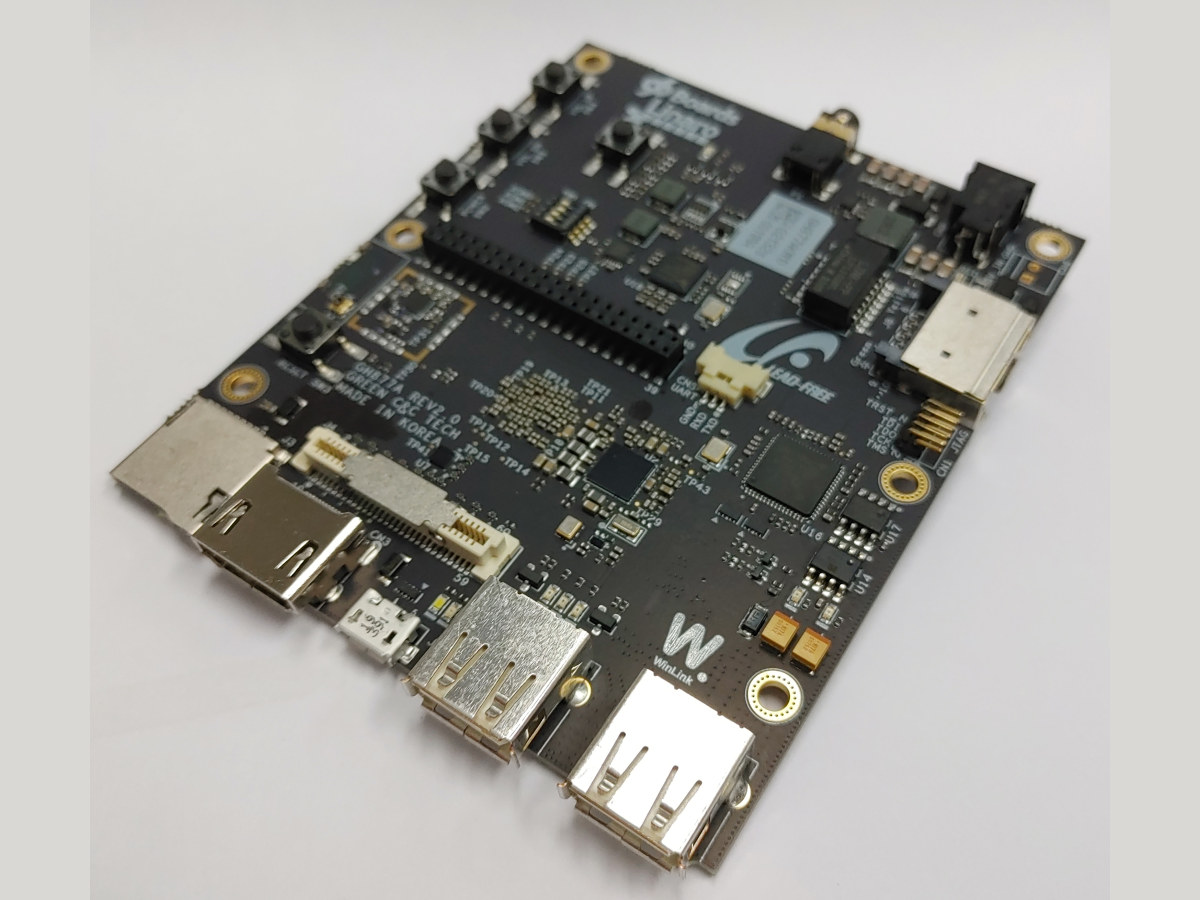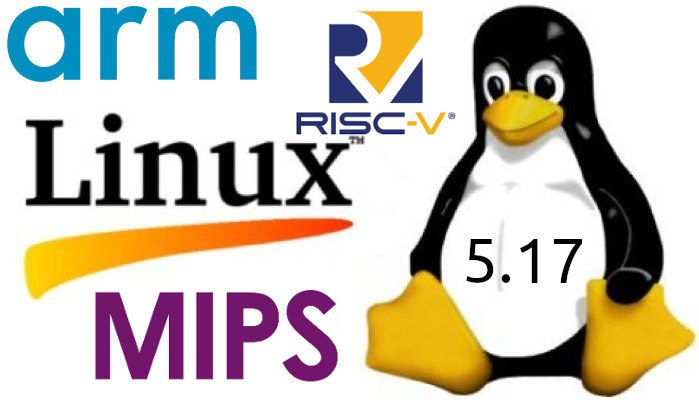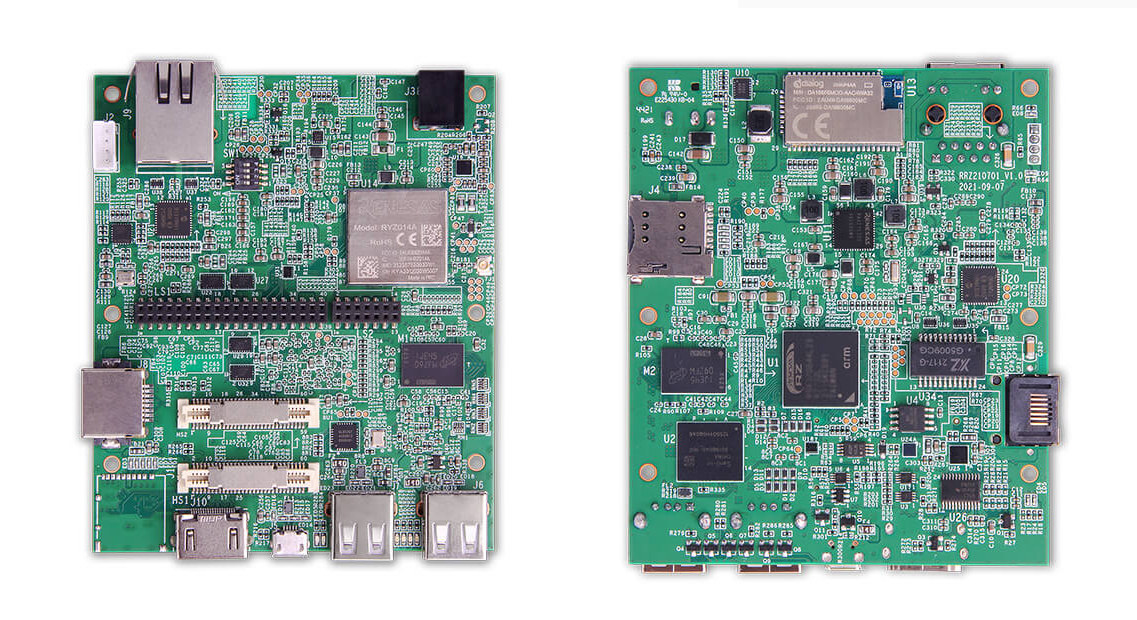Qualcomm had two main announcements at Embedded World 2024: the ultra-low-power Qualcomm QCC730 WiFi microcontroller for battery-powered IoT devices and the Qualcomm RB3 Gen 2 Platform hardware and software solution designed for IoT and embedded applications based on the Qualcomm QCS6490 processor that we’re going to cover today. The kit is comprised of a QCS6490 octa-core Cortex-A78/A55 system-on-module with 12 TOPS of AI performance, 6GB RAM, and 128GB UFS flash connected to the 96Boards-compliant Qualcomm RBx development mainboard through interposer, as well as optional cameras, microphone array, and sensors. Qualcomm QCS6490/QCM6490 IoT processor Specifications: CPU – Octa-core Kryo 670 with 1x Gold Plus core (Cortex-A78) @ 2.7 GHz, 3x Gold cores (Cortex-A78) @ 2.4 GHz, 4x Silver cores (Cortex-A55) @ up to 1.9 GHz GPU – Adreno 643L GPU @ 812 MHz with support for Open GL ES 3.2, Open CL 2.0, Vulkan 1.x, DX FL 12 DSP – Hexagon […]
Edgeble AI Neural Compute Module 2 (Neu2) follows 96Boards SoM form factor
Edgeble AI’s Neurable Compute Module 2, or Neu2 for shorts, is a system-on-module for computer vision applications based on the Rockchip RV1126 quad-core Cortex-A7 camera processor that follows the 96Boards SoM form factor. I first found the Neu2 and Neu6 (Rockchip RK3588) in the release log for the Linux 6.3 kernel, but at the time I found there was not enough information about those. The specifications for the Neu6 are still wrong (e.g. “64-bit processor with 4x Cortex-A7 core”) at the time of writing, so I’ll check the Neu2 system-on-module and its industrial version – the Neu2K based on RK1126K – for which we have more details. Edgeble Neu2 SoM specifications: SoC – Rockchip RV1126/RV1126K with CPU – Quad-core Arm Cortex-A7 @ 1.5GHz, RISC-V MCU @ 200MHz; (14nm SMIC process) GPU – 2D graphics engine NPU – 2 TOPS with INT8/INT16 VPU 4K H.264/H.265 video encoder up to 3840 x […]
Qualcomm Robotics RB1 and RB2 development kits launched for $199 and up
We quickly mentioned the Qualcomm Robotics RB1 and RB2 development kits in our post about Lantronix Open-Q 2210RB and 4210RB SiPs mostly to complain about the lack of information at the time. But things have changed the Qualcomm Robotics RB1 and RB2 devkits for cheaper, smaller Linux-powered robots with lower power consumption are now available, and we have more details with three options: Core Kit, Vision Kit, and Full Kit. So let’s have a closer look. All kits are based on the Qualcomm Robotics RB1/RB2 Core Kit with the following (preliminary) specifications: System-on-module RB1 – Thundercomm TurboX C2210 SoC – Qualcomm QRB2210 CPU – Quad-core Cortex-A53 processor at up to 2.0 GHz GPU – Adreno 702 GPU at 845 MHz with support for OpenGL ES 3.1, Vulkan 1.1, OpenCL 2.0 Hexagon QDSP6 v66 DSP 1080p 30 fps encode / 1080p 30fps decode System Memory – 1GB or 2GB LPDDR4 Storage […]
Lantronix Open-Q 2210RB and 4210RB SiPs for robotics power RB1/RB2 development kit
What comes after Qualcomm Robotics RB3, RB5, and RB6 platforms? Apparently, it’s Qualcomm Robotics RB1 and RB2 platforms powered by Qualcomm QRB2210 and Qualcomm QRB4210 processors respectively and optimized for cheaper, smaller robots with lower power consumption. But Qualcomm is one of the lamest companies known to man, so they did not include any photos when announcing the Robotics RB1 and RB2 platforms, so I’ll focus this post on Lantronix Open-Q 2210RB and 4210RB system-in-packages (SiP) based on the same processors, as well as the Open-Q RB1/RB2 development kit. Open-Q 2210RB and 4210RB SiP The new system-in-packages are very similar to the earlier Open-Q 2290CS and 4290CS SIPs for industrial IoT and machine vision applications, with the only difference being the Qualcomm processor used, so I invite you to read the earlier post for the full details, and I’ll just provide summaries here. Open-Q 2210RB key features: SoC – Qualcomm […]
Qualcomm-based Open-Q 2290CS and 4290CS SIPs target industrial IoT and machine vision applications
Lantronix has just unveiled two new System-in-Packages (SiP) with the entry-level Open-Q 2290CS SIP based on Qualcomm QCS2290 quad-core Cortex-A53 processor designed for industrial IoT applications and safety vehicle equipment control, and the pin-compatible, mid-range Open-Q 4290CS SIP based on Qualcomm QCS4290 octa-core Kryo 260 CPU for applications requiring artificial intelligence and machine learning capabilities. The Open-Q 2290CS module comes with 2GB LPDDR4, 16GB eMMC flash, WiFi 5 and Bluetooth 5.0 connectivity, while the Open-Q 4290CS module is equipped with up to 6GB LPDDR4, up to 256GB eMMC flash., and Wi-Fi 5 with some Wi-Fi 6 features (TWT & 8SS), and Bluetooth 5.1. Lantronix also offers the Open-Q AL2 development kit supporting either both SIP modules for evaluation and rapid prototyping. Open-Q 2290CS – Qualcomm QCS2290 SiP Specifications: SoC – Qualcomm QCS2290 quad-core Cortex-A53 processor at up to 2.0 GHz with Adreno 702 GPU at 845 MHz with support for […]
WinLink E850-96Board SBC is powered by Samsung Exynos 850 Octa-core Cortex-A55 SoC
WinLink E850-96Board is a 96Boards CE Extended-compliant single board computer (SBC) based on a Samsung Exynos 850 octa-core Cortex-A55 processor plus 64GB flash and 4GB RAM found in a single eMCP (embedded Multi-Chip Package) chip. While the Samsung Exynos 5422 based ODROID-XU4/XU4Q was one of the most popular SBCs when it launched in 2015 thanks to its features set and affordable pricing, we haven’t really seen other interesting Samsung Exynos SBCs in recent years. I did notice a WinLink E850-96Board based on Exynos 850 in the Linux 5.17 release last March, but there was not enough information then. The good news is that the board has now launched so let’s have a closer look. WinLink E850-96Board “All-in” board specifications: SoC – Samsung Exynos 850 CPU – Octa-core Arm Cortex-A55 processor @ up to 2.0GHz GPU – Arm Mali-G52 MP1 GPU supporting OpenGL ES1.1/2.0/3.2, OpenCL 2.0 Full Profile, and Vulkan 1.0/1.1 […]
Linux 5.17 release – Main changes, Arm, RISC-V, and MIPS architectures
Linus Torvalds has just released Linux 5.17: So we had an extra week of at the end of this release cycle, and I’m happy to report that it was very calm indeed. We could probably have skipped it with not a lot of downside, but we did get a few last-minute reverts and fixes in and avoid some brown-paper bugs that would otherwise have been stable fodder, so it’s all good. And that calm last week can very much be seen from the appended shortlog – there really aren’t a lot of commits in here, and it’s all pretty small. Most of it is in drivers (net, usb, drm), with some core networking, and some tooling updates too. It really is small enough that you can just scroll through the details below, and the one-liner summaries will give a good flavor of what happened last week. Of course, this means […]
Renesas RZ/G2L or RZ/V2L AI development board comes with built-in LTE Cat M1 modem, 96boards form factor
Geniatech “AHAURA” RS-G2L100 / “AKITIO” RS-V2L100 is a Renesas RZ/G2L and RZ/V2L Cortex-A55/M33 development board that follows 96boards CE Extended v2.0 form factor, and is equipped with a Renesas LTE Cat M1 modem. Both RZ/G2L and RZ/V2L processors are basically the same, but the latter adds the “DRP-AI” (dynamically reconfigurable processor) AI accelerator for computer vision applications. The board also comes with up to 4GB RAM, two Gigabit Ethernet ports, a wireless WiFi and Bluetooth module, as well as Full HD HDMI video output, plus some USB ports, and the usual low-speed and high-speed expansion connectors from the 96Boards standard. Geniatech AHAURA RS-G2L100 and AKITIO RS-V2L100 specifications: SoC – Renesas RZ/G2L or RZ/V2L with dual-core Cortex-A55 processor @ 1.2 GHz, Arm Cortex-M33 core @ up to 200 MHz, Arm Mali-G31 GPU, and DRP-AI vision accelerator (RZ/V2L only) System Memory – 4GB (default) or 8GB LPDDR4 Storage – 8GB, 16GB, 64GB, […]


